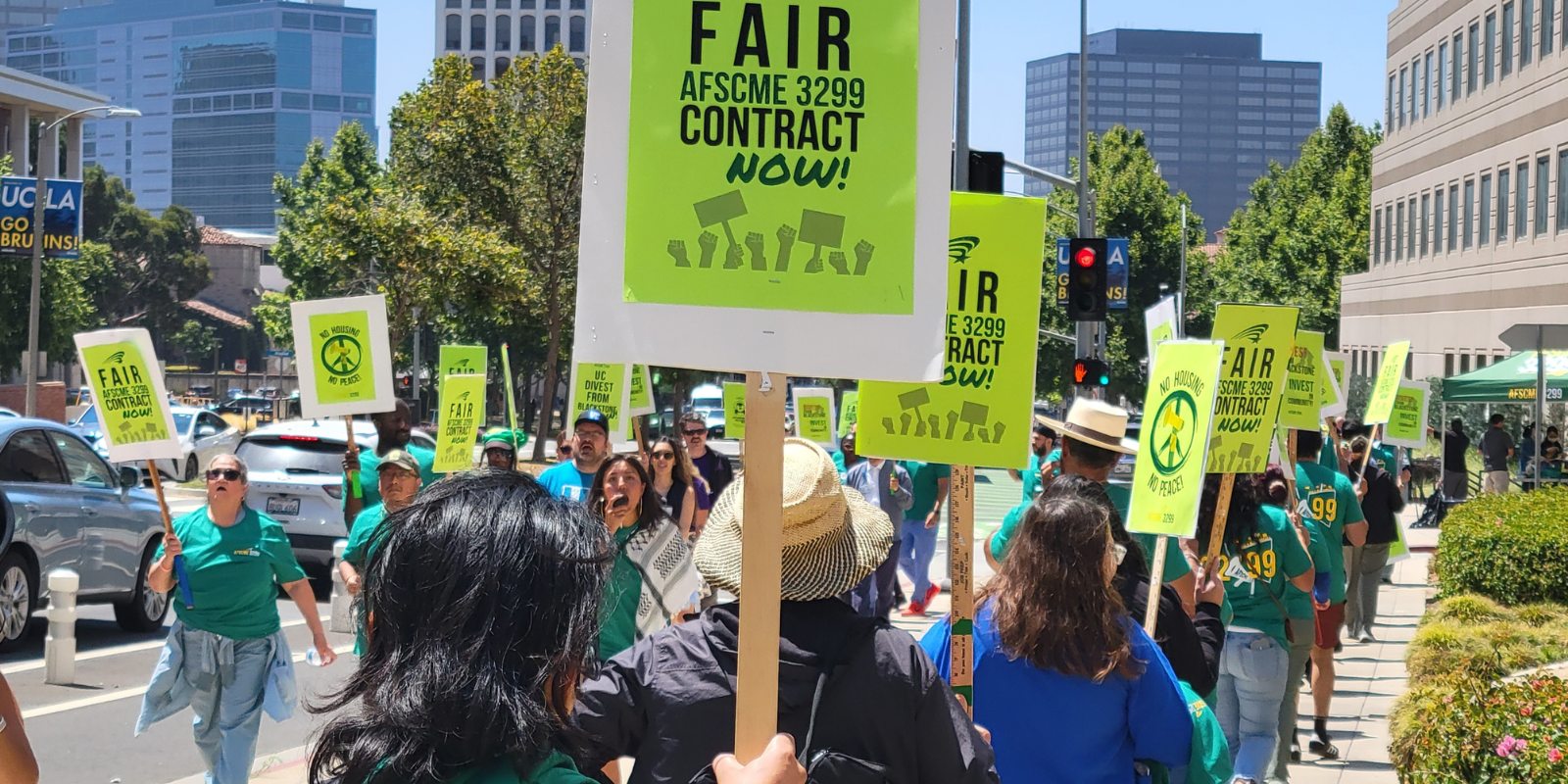Thousands of AFSCME members who work for the University of California system took to the streets at UC campuses throughout the state to demand a fair contract. They were supported by students and community allies.
The front-line service and patient care workers who are members of AFSCME Local 3299 joined picket lines and rallies last Wednesday after they hit an impasse with UC over contract negotiations. Protests and rallies were held at all 10 UC campuses, 9 hospitals, clinics, and labs.
AFSCME members want a new collective bargaining agreement that addresses the cost-of-living and housing-affordability crises that are plaguing front-line workers, and they had been bargaining with their employer for more than six months.
“The University of California has publicly acknowledged a staff vacancy crisis that ultimately threatens the quality of services it can deliver to its students and patients,” said Local 3299 President Michael Avant. “This is a function of UC’s overall failure to compete in the labor market, its failure to pay front-line workers enough to keep pace with rising costs, and its total refusal to commit to the housing-affordability solutions workers need in order to live near their jobs.”
Local 3299 said in a press release that research shows it is 47% more expensive to live in a community with a UC campus than the average for a comparable college town nationwide. Meanwhile, the real wages of front-line UC patient care technicians and service workers have been on a steady decline since the COVID-19 pandemic.
Last year, UC acknowledged that its staff vacancy rate had tripled since pre-pandemic times, according to the release. As short staffing has increased, workers’ real wages have declined by an average of 8% since 2017.
During the same period, the university’s highest-paid executives have received increases to their base pay levels of as much as 36%, in addition to perks that include low-cost mortgages and assistance that can be used to subsidize the purchase of second homes.
Local 3299 represents more than 33,000 service and patient care technical workers at the university’s 10 campuses, five medical centers, numerous clinics, research laboratories and more.
